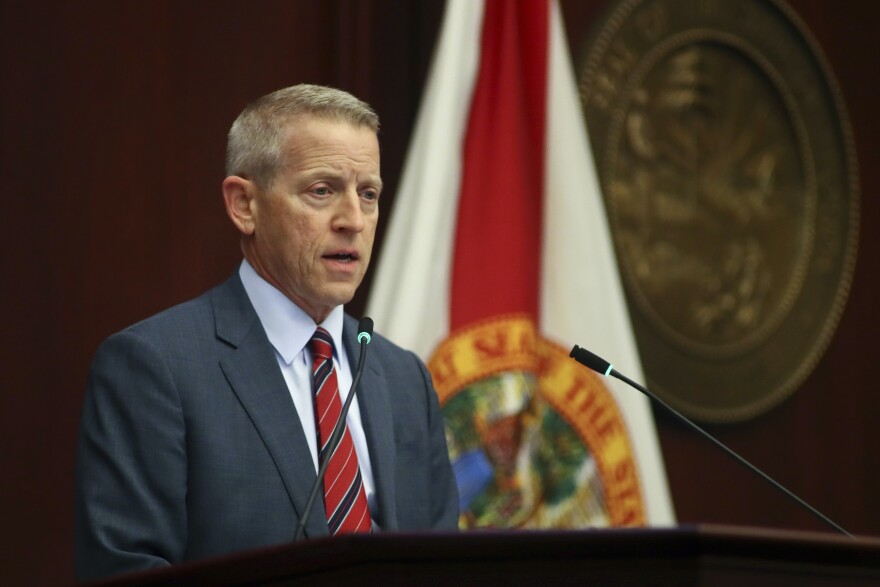The Florida Senate on Tuesday passed a plan that would bar doctors and other health-care providers from offering treatments such as puberty blockers and hormone therapy to transgender minors.
The bill (SB 254) would largely put into law rules approved by state medical boards, but it also could lead to felony charges for doctors who provide the treatments to minors.
Bill sponsor Clay Yarborough, R-Jacksonville, said the treatments, which also could involve surgery, are “experimental” when provided to children.
“I believe we need to let kids be kids,” Yarborough said. “And our laws need to set appropriate boundaries that respect the rights and responsibilities of parents while protecting children from the very serious health and safety concerns associated with these treatments.”
But Democratic lawmakers said major national medical associations support gender-affirming care for transgender minors and that the bill is part of broader efforts in legislatures across the country to target LGBTQ youths. Rep. Tina Polsky, D-Boca Raton, called the bill “persecution, plain and simple.”
“I will not co-sign on vilifying young people who are trying just to be who they are, vilifying parents when they want to seek gender-affirming care, vilifying physicians who provide this care,” Sen. Geraldine Thompson, D-Windermere, said.
The Republican-controlled Senate voted 27-12 along almost-straight party lines to pass the bill. Sen. Gayle Harrell, R-Stuart, joined Democrats in opposing the bill. The bill now will go to the House, where it is expected to pass.
“I don’t think that young people should have their bodies mutilated until they have a chance to make a decision,” House Speaker Paul Renner, R-Palm Coast, told reporters earlier Tuesday. “And when they’re adults, if that’s what they choose to do, then we support them in that decision. … And I think everybody in this room, everybody listening, knows that when you are a child developmentally, you are not ready to make those determinations.”
Also, Gov. Ron DeSantis has made the issue a priority, frequently calling gender-affirming care “child mutilation.”
But Sen. Lori Berman, D-Boca Raton, alluded Tuesday to DeSantis and GOP lawmakers often touting the “free” state of Florida.
“Free states don’t ban health care,” Berman said. “This state should not be stepping in to override parents’ decisions about health care for their children. The bill strips Florida parents of the right to follow the evidence-based advice of health-care providers to provide the best care for their transgender child.”
The issue centers, in part, on treatment for gender dysphoria, which the federal government defines clinically as “significant distress that a person may feel when sex or gender assigned at birth is not the same as their identity,”
The legislation came after the Florida Board of Medicine and the Florida Board of Osteopathic Medicine, at the urging of the DeSantis administration, adopted rules that prevent doctors from providing the treatments to minors. Those rules went into effect last month.
The bill includes an exemption for children currently receiving puberty blockers or hormone therapy to treat gender dysphoria. But it also would require the medical boards to create rules to establish standards of care for transgender children currently receiving the treatments.
While adults would be able to receive the treatments, the bill includes additional restrictions. For example, adults would have to sign consent forms that would be developed by the medical boards. Also, the bill would prevent the use of telehealth in providing treatments.
Republican lawmakers and the DeSantis administration have made a series of controversial decisions in recent years about LGBTQ-related issues. As an example, the DeSantis administration last year stopped Medicaid reimbursements for gender-affirming treatment for minors and adults, a move that has been challenged in federal court.




